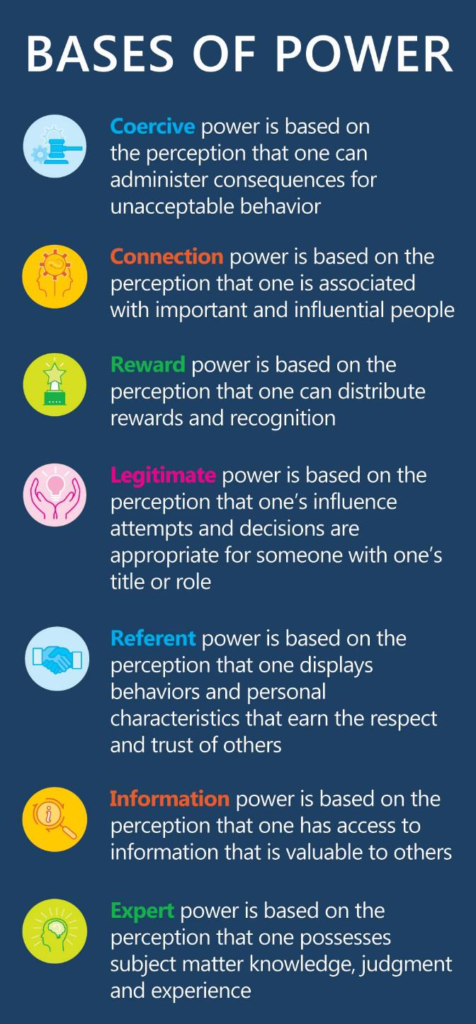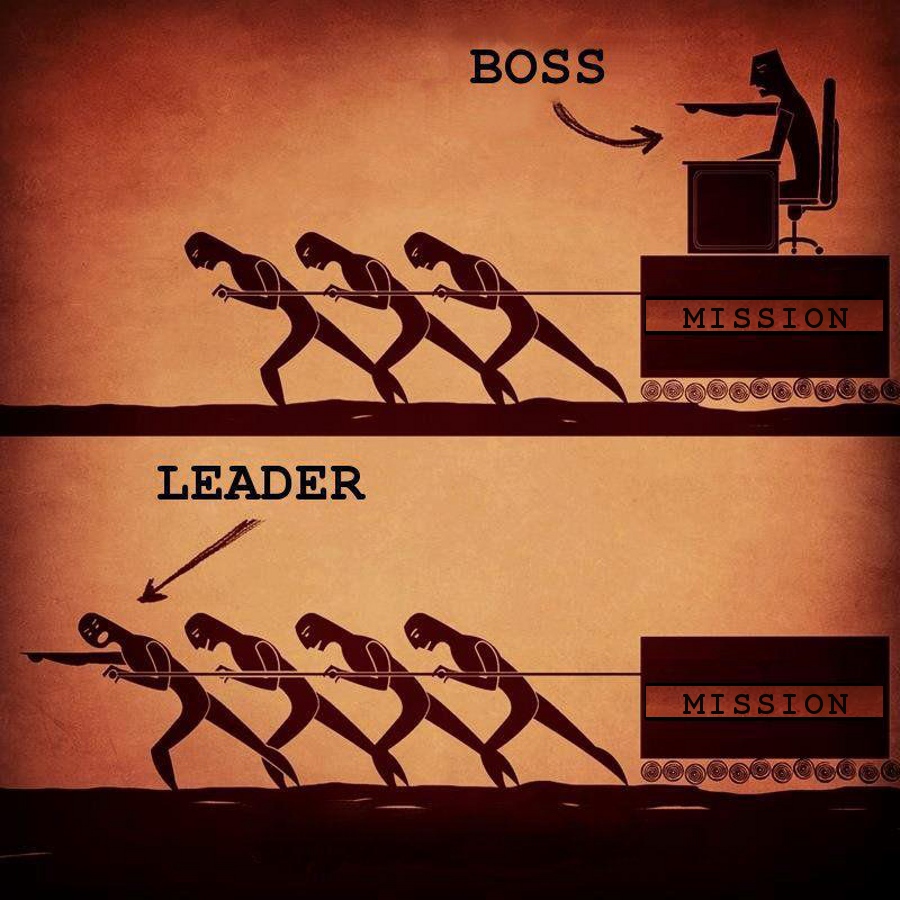
We have mentioned that leaders, other than managers are not always formally appointed. How do leaders then move people (followers) to support/accompany them in attaining their goals?
Click here to view a video that explains leadership the "The Butterfly Story".
It is generally accepted that leaders have four core sources of power and influence available to them. These are:
Formal (or legitimate) power: This comes from being appointed by the organization into a leadership position (i.e. as a manager). Cultural norms tend to reinforce the view that a manager has the right to lead subordinates.
Expertise power: This sort of power comes from having knowledge, skills and expertise which are regarded as important by the leader’s followers. With a formal leader, this expertise is usually associated with goal achievement.
Reward/Punishment power: This comes from the leader having the ability to reward and punish followers. That is, they have influence over pay, promotion and recognition of followers.
Personality power: Many personal characteristics come into this category. If a leader is liked and respected by subordinates and peers, he or she will have more influence over them. This is sometimes called the power of charisma. A charismatic leader is one who inspires his or her subordinates to achieve goals, essentially through force of personality.

We all may differ in what we regard as being leadership characters/behaviour. Research conducted by Kirkpatrick and Locke in 1991 highlighted six frails that differentiate leaders from non-leaders.

Drive. Leaders exhibit a high effort level. They have a relatively high desire for achievement, they are ambitious, they have a lot of energy, they are tirelessly persistent in their activities and they show initiative.
Desire to lead. Leaders have a strong desire to influence and lead others. They demonstrate the willingness to take responsibility.
Honesty and integrity. Leaders build trusting relationships between themselves and followers by being truthful or non/deceitful and by showing high consistency between word and deed.
Self-confidence. Followers look to leaders for an absence of self-doubt. Leaders, therefore, need to show self-confidence in order to convince followers of the rightness of goals and decisions.
Intelligence. Leaders need to be intelligent enough to gather, synthesize and interpret large amounts of information and to be able to create visions, solve problems and make correct decisions.
Job-relevant knowledge. Effective leaders have a high degree of knowledge about the company, the industry and technical matters. In-depth knowledge allows leaders to make well-informed decisions and to understand the implications of those decisions.